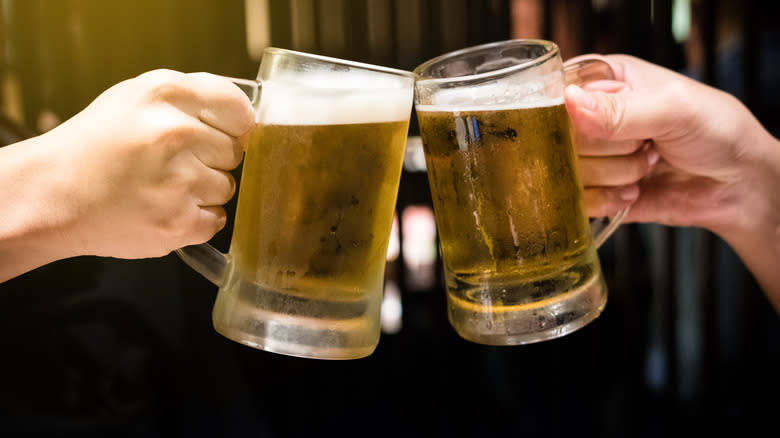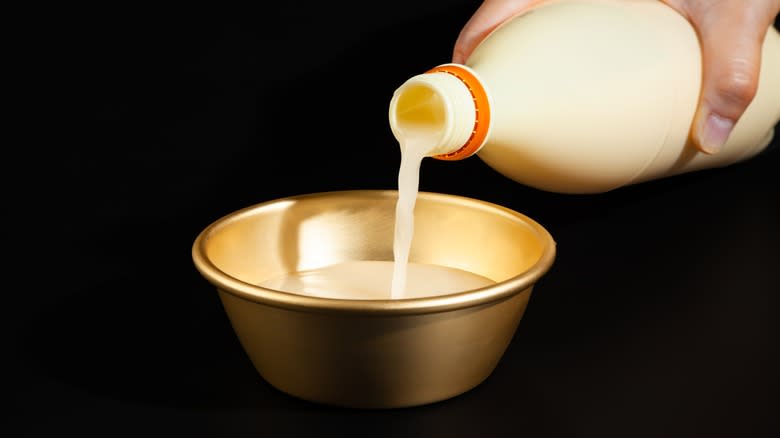Why You Should Think Twice Before Adding Rice Beer To Your Gluten-Free Diet

If you avoid gluten, you probably celebrate rice since it's naturally gluten-free and can be a carb of choice for people with celiac disease or those on a gluten-free diet (here are some gluten-free recipes to add to your rotation). Rice and gluten-free rice flour are often used as substitutes for wheat when baking cakes, cookies, breads, or even velvety gluten-free gravy.
In the same vein, one might think that rice beer is safe to add to a gluten-free diet, but that's not always the case. Not all rice beers are inherently gluten-free. When picking up a rice beer, it's always important to check the label first. If a beer is gluten-free, the label should say it is gluten-free or 100% gluten-free. While rice does not contain gluten, many rice beers incorporate wheat or malted barley, and both ingredients, like rye, are chock full of gluten. If the list of ingredients includes barley, rye, or wheat, the rice beer is not gluten-free.
Rice beers are becoming increasingly popular, as rice is sometimes cheaper to use than malt to make beer. Rice is also one of the more sustainable grains for brewers. Additionally, rice enhances a beer's flavor by adding subtle umami and providing the sugars that aid fermentation. However, with some rice beers, brewers still add wheat and barley to add flavor complexity and richer carbonation, everything beer fans look for when drinking beer.
Read more: 15 Popular Hard Seltzer Brands, Ranked Worst To Best
Not All Rice Beers Are Gluten-Free, But There Are Some Good Ones

When brewed with added wheat and barley, rice beers have more structure and flavor. However, there are still some rice beers that are completely gluten-free and made predominantly with rice. There are Asian-style rice beer options, and one of our favorites is Sool Makku, a Korean rice beer (or makgeolli) that is 100% gluten-free. The drink is sweet but not too sweet, creamy and cloudy, bubbly, and refreshing and it comes in many flavors like blueberry, passion fruit, mango, and even coffee during a limited launch. Best yet, Sool Makku is a minority and women-founded small business. Another 100% gluten-free rice beer to consider is a rice lager by Calrose Crisp, which is brewed with sushi rice malt. Both rice beers sport "gluten-free" on their labels.
While there aren't many rice beers that are completely gluten-free to choose from in the U.S., there are many gluten-free beers to try. Other than rice, brewers can use gluten-free grains like millet, buckwheat, and sorghum to make gluten-free beer. Note that there are also beers that have reduced gluten content. These "gluten-reduced" and "gluten-removed" beers are not 100% gluten-free, so be sure to dutifully check the labels before imbibing, and check our list of other foods that might seem gluten-free but aren't.
Read the original article on Tasting Table.

 Yahoo Finance
Yahoo Finance